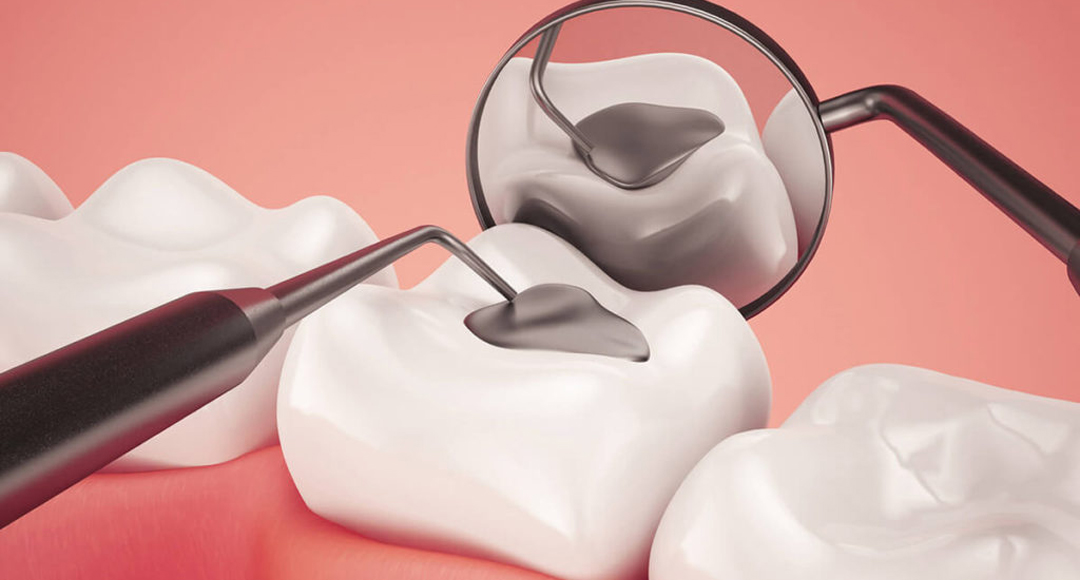The Ultimate Guide to Dental Fillings: Everything You Need to Know
What happens when you have hollow teeth? How can you stop your teeth from decaying? The answer to your problems is dental fillings. Your dentist removes the decayed piece of the tooth and then “fill” the area to treat a cavity. Tooth Filling can restore broken or cracked teeth and teeth worn down by trauma (such as nail-biting or tooth-grinding).
What are Dental Fillings?
A dental filling restores a decayed tooth to its normal function and shape. Your dentist performs the filling procedure by removing the decayed tooth material, cleaning the afflicted region, and then filling the cleaned-out cavity with a filling substance.
Dental fillings are single or mixed metals, glass, polymers, or other materials that can repair or restore teeth. One of the most common applications for teeth fillings is to “fill” a decayed part of a tooth that your dentist has removed – “a cavity.”
A filling prevents further degradation by blocking up areas where bacteria can enter. Filling materials include gold, porcelain, composite resin (tooth-coloured fillings), and amalgam (mercury, silver, copper, tin, and sometimes zinc alloy).
Pros and Cons of Different Dental Filling Materials
Like others, dental filling materials too have their benefits and risks.
Advantages of Different Dental Fillings
- Gold: Gold dental fillings last up to 10-15 years and have a nice appearance, according to some.
- Silver amalgam fillings: Sliver Fillings also last up to 10 to 15 years and are cheaper than composite fillings.
- Tooth-coloured composite fillings: These fillings look similar to your natural teeth. The shade of the filling can closely match the colour of existing teeth; it attaches to the existing tooth, providing additional stability, is often used for repairs other than cavity fillings, and requires less tooth removal than amalgams.
- Ceramics/porcelain: Porcelain or ceramic fillings last over 15 years and are more stain resistant than composite resin material.
- Glass ionomer (acrylic and a specific type of glass substance): This filling is typically used for fillings below the gum line; this material releases fluoride, which can help prevent additional tooth decay.
Disadvantages of Different Dental Fillings
- Gold: Gold Fillings are the most expensive filling material than other materials and may need more than one sitting.
- Silver: These fillings may require more teeth removed to make room for the actual filling. Moreover, It imparts a greyish colour to the surrounding tooth structure, may increase the risk of tooth cracks and fractures due to a greater degree of expansion and contraction, and may cause allergic reactions in certain people.
- Tooth-coloured composite fillings: These fillings only last up to five years compared to other materials lasting 10-15 years. Depending on location, it may chip off tooth, cost up to twice as much as amalgams, take longer to put in and require additional appointments.
- Ceramics: Ceramic/Porcelain Fillings can cost as expensive as gold.
- Glass ionomer: These are weaker than composite resin, more prone to wear and fracture, last five years or less, and cost about the same as composite fillings.
How should I care for my teeth with fillings?
Similar to other dental procedures, you must take care of your oral health for a few days post the fillings procedure. Here are three ways of dental hygiene which can help you take care of your fillings:
- Getting routine cleanings done at the dentist twice a year.
- Brushing your teeth with fluoride toothpaste.
- Flossing at least once daily.
Moreover, Visit your dentist immediately if you have any of these three signs:
- Your tooth is quite sensitive.
- You notice a sharp edge.
- You detect a crack in a filling or a missing piece of the filling.
If your dentist suspects that one of your fillings is broken or “leaking” (When the filling’s edges do not fit tightly against the tooth, debris and saliva may penetrate the filling and the tooth, causing deterioration), they will take X-rays.
What causes tooth sensitivity after getting a dental filling?
It is common to experience tooth sensitivity after filling implantation. Air, Pressure, sugary foods, and temperature can all cause dental sensitivity. The sensitivity usually goes away on its own within a few weeks. Avoid the source of the sensitivity till then. A pain reliever is generally unnecessary.
Consult your dentist if the sensitivity stays longer than two to four weeks or your tooth is vulnerable. They may propose desensitising toothpaste, applying a desensitising substance to the tooth, or performing a root canal treatment.
Why do I feel pain around my dental filling?
There are several possible causes of pain following a dental filling procedure.
- Biting pain: Your filling is interfering with your biting. Return to your dentist and request to reshape the filling.
- Pain when your teeth come into contact: Your pain is caused by the interaction of two different metal surfaces, such as the silver amalgam in a recently filled tooth and the gold crown on a neighbouring tooth. This discomfort should subside on its own in a short period.
- Toothache-like sensation: This pain may occur if the decay has reached the tooth’s pulp. This “toothache” response could indicate that the tissue is no longer healthy and that root canal surgery is required.
- Referred pain: This pain or sensitivity occurs in teeth other than the filled one. Your teeth are most likely in good condition. The filled tooth is just relaying “pain signals” to neighbouring teeth. This soreness should subside on its own within one to two weeks.
Why or when would a dental filling need to be replaced?
Dental fillings may require replacement for one of three major causes.
- Normal wear and tear: The constant strain from grinding, chewing, or clenching can wear away, chip, or shatter tooth fillings. Although you may not notice that your filling is deteriorating, your dentist can detect flaws in your restorations during a routine check-up.
- When a filling fails, deterioration occurs: Food particles and decay-causing germs can enter the filling if the seal between the filling and the tooth enamel breaks down. You then run the risk of getting further decay in that tooth. If left untreated, decay can infect the dental pulp and result in an abscessed tooth.
- Large filling or decay: If the filling is large or the recurring decay is widespread, there may not be enough dental structure left to support a new filling. In some conditions, your dentist might use a crown instead of a filling.
Take Away
Dental fillings are necessary for the restoration of decayed or broken teeth as well as the maintenance of oral health. Understanding the benefits and drawbacks of various filling materials, as well as proper aftercare, is critical. Gold fillings are more durable and attractive, but silver amalgam fillings are less expensive. Composite fillings are tooth-coloured and mix well with natural teeth, although they may need to be replaced more frequently. Porcelain or ceramic fillings are durable and stain-resistant, but costly. Glass ionomer fillings release fluoride and are safe to use below the gumline.
Caring for teeth with fillings entails regular cleanings, brushing with fluoride toothpaste, and flossing daily. It is critical to address sensitivity, sharp edges, and damage immediately. Due to wear and tear or degradation, dental fillings may need to be replaced. Regular dental check-ups aid in the monitoring of fillings and the early detection of problems. Dental fillings can give a healthy and appealing smile for years if good oral hygiene and timely dental care are practised.
Make an appointment with our skilled dental experts at Ideal Dental Care for thorough and professional dental care. Allow us to assist you in maintaining your oral health and providing the best dental treatments for your specific needs. Please call [phone number] or visit [website URL] to schedule an appointment. Your smile deserves the best dental care possible!




